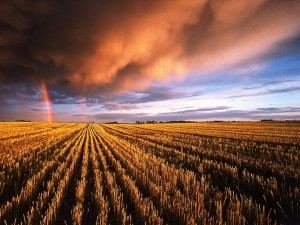
"The Farm Land Security Board will continue to be pressed to make changes. We have some of the most productive land in the world," says provincial deputy agriculture minister Alanna Koch. "We're having a lot of Chinese state interests looking around and interested in land. We're not interested in that."
Reuters | 9 November 2011
by Carey Gillam
Boston (Reuters) -- Growing investor interest in high-production farmland in Saskatchewan is helping push up farmland values, but the province's limits on foreign agriculture investment are not likely to ease any time soon, according to a leading ag official. Saskatchewan is one of several provinces that restricts farmland ownership by non-Canadians. The Farm Land Security Board enforces a farm ownership act that limits foreign investors to direct ownership of no more than 10 acres. "The Farm Land Security Board will continue to be pressed to make changes. We have some of the most productive land in the world," provincial deputy agriculture minister Alanna Koch said Tuesday in an interview with Reuters. She said attitudes were evolving and loosened restrictions were likely over time. But, she said, "This isn't on our to-do list." Foreign investors are gaining ground despite the restrictions, participating as minority players in various investment vehicles, she said. The investor interest is helping lift land values. Farmland in Saskatchewan has risen to about $500 an acre on average, a climb of 44 per cent since 2002, Koch told Reuters on the sidelines of the Agriculture Outlook Americas conference in Boston. Still, with the spike in values, the region's farmland remains far cheaper than prime U.S. farmland, which in some areas exceeds $6,000 an acre. Canola farmland is well sought after, as well as land for lentil production. Indeed, on Monday, Assiniboia Farmland Ltd. Partnership, the largest farmland investment partnership in Canada with nearly 100,000 acres of farmland under management, announced a $20 million private placement to fund purchases of more land in the region. The average value of Canadian farmland increased three per cent during the first six months of 2010, following increases of 3.6 and 2.9 per cent in the previous two reporting periods, according to Farm Credit Canada. FCC said farmland values remained stable or increased in all provinces except British Columbia, with Saskatchewan seeing 2.9 per cent growth, on top of the 3.4 per cent growth seen in the second half of 2009. The cheap but appreciating values, combined with a stable government, mature infrastructure, and quality soil and water resources, have drawn the attention of investors from around the world, including China, said Koch. "We're having a lot of Chinese state interests looking around and interested in land. We're not interested in that," she said.












